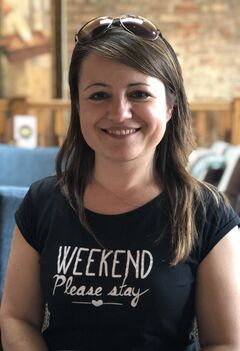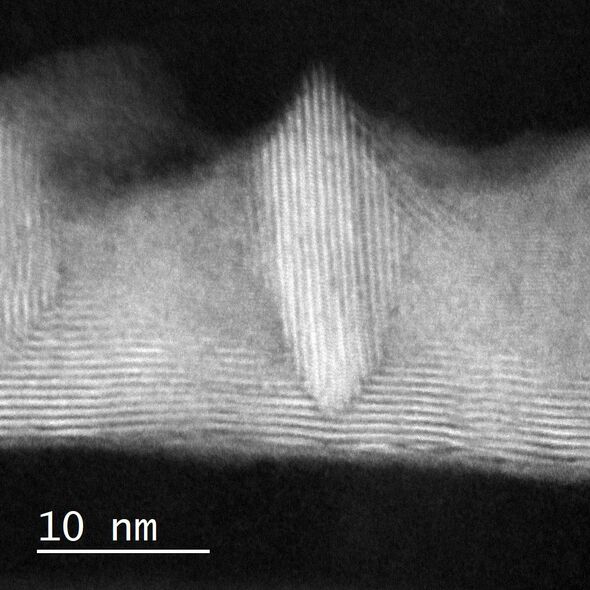‘Diplomatic’ research with India and Turkey
NWO has awarded two TU/e researchers with a grant from its new Science Diplomacy Fund. Professor Ageeth Bol (Applied Physics) will collaborate with a colleague from India in the field of sensors for agriculture and the environment. Assistant professor Dury Bayram-Jacobs (Eindhoven School of Education) wants to exchange experiences with Turkish colleagues on how to use social issues with a strong scientific component to encourage citizenship.
Ageeth Bol is an expert in the field of 2D materials – layers that possess unique properties because of their extreme thinness. She was approached, through a colleague from Denmark, by a professor of the Indian Institute of Technology Bombay, she says. “He has expertise in the field of device simulation, among other things, and sees potential in 2D materials for sensors with which you can measure nitrogen emission, for example. The idea is that the edges of 2D materials are highly sensitive to such gases. That is why I applied for funding from NWO, together with a colleague from Delft who specializes in sensors, to see if we can write an international research proposal in this area.”
The €20.000 subsidy will be used to bring the Indian professor, Saurabh Lodha, to the Netherlands for a few months, and Bol and her colleague from Delft will travel to Mumbai. “It’s mostly about the exchange of persons,” Bol says. “Professor Lodha will hold a series of lectures in Delft and/or Eindhoven during his stay, and we will give a seminar in Mumbai.” She also thinks it’s important to see the labs of her collaboration partners with her own eyes in order to effectively assess the possibilities.
The project was scheduled to run from August until December 31, but that timing has now become extremely unfortunate due to the corona pandemic, Bol admits. “The Dutch consulate in Mumbai actually still remains completely closed, so travelling is not an option for the time being. We will ask NWO if we can start the project at a later stage; I expect they will understand.”

Social issues
Turkish assistant professor Dury Bayram-Jacobs - who, incidentally, started to work for TU/e as recently as April - was actually supposed to start with her project this month already. “Fortunately, NWO informed us that we can postpone the start of our project until 2021 if we want to.” The educationalist was supposed to organize a workshop in Eindhoven and a seminar in Istanbul with colleagues from Turkey. “We will now hold our project’s kickoff via Skype and we’ll keep track of the developments surrounding COVID-19 in the meantime, to see when we will be able to meet face to face.”
Bayram-Jacobs and her colleagues from Turkey were involved in two different European projects on so-called socio-scientific issues: (controversial) social issues with links to science – such as vaccination, genetic modification, nuclear energy, as well as COVID-19. Such issues can be used in education to improve students’ critical thinking, argumentation and decision-making skills, she explains. “One of the things I’ve done is develop a teaching package for this, and we want to share our findings with our scientific colleagues, teacher trainers and teachers. This is a small project, but today’s students are tomorrow’s political leaders and captains of industry. This project could therefore have a long-term influence.”
Science Diplomacy Fund
The new Science Diplomacy Fund aims to fund scientific activities that will improve diplomatic relations between the Netherlands and partner countries, and potentially improve bilateral collaboration between these countries. Priority will be given to applications directed towards Russia and Turkey, as well as to countries with which NWO already realizes bilateral research programs in the context of the Merian Fund: Brazil, China, India, Indonesia and South Africa.
![[Translate to English:]](/fileadmin/_processed_/1/6/csm_collage_bol_jacobs_b14c79df53.jpg)



Discussion